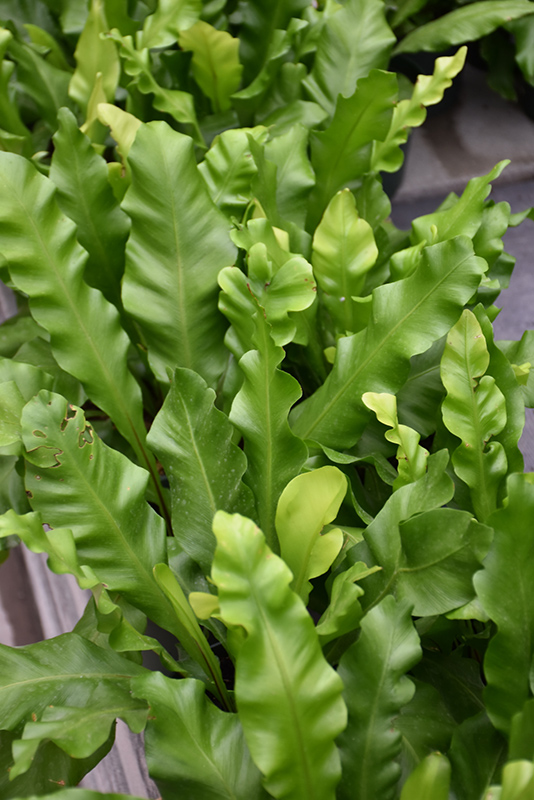Height: 5 feet
Spread: 5 feet
Sunlight:
![]()
![]()
Description:
Elegant, long, glossy fronds with dramatic black spines; prefers moisture and shady areas, but is somewhat adaptable and makes a great potted plant for indoors; cannot divide this variety, propagated through spores or tissue culture
Features & Attributes
Bird's Nest Fern is primarily valued in the home for its cascading habit of growth. Its attractive large glossy narrow leaves remain light green in color with pointy black spines throughout the year.
This is an herbaceous houseplant with a shapely form and gracefully arching foliage. Its relatively coarse texture stands it apart from other indoor plants with finer foliage. This plant usually looks its best without pruning, although it will tolerate pruning.
Planting & Growing
When grown indoors, Bird's Nest Fern can be expected to grow to be about 5 feet tall at maturity, with a spread of 5 feet. It grows at a slow rate, and under ideal conditions can be expected to live for approximately 15 years. This houseplant performs well in both bright or indirect sunlight and strong artificial light, and can therefore be situated in almost any well-lit room or location. It prefers to grow in average to moist soil. The surface of the soil shouldn't be allowed to dry out completely, and so you should expect to water this plant once and possibly even twice each week. Be aware that your particular watering schedule may vary depending on its location in the room, the pot size, plant size and other conditions; if in doubt, ask one of our experts in the store for advice. It is not particular as to soil pH, but grows best in rich soil. Contact the store for specific recommendations on pre-mixed potting soil for this plant.
There are many factors that will affect the ultimate height, spread and overall performance of a plant when grown indoors; among them, the size of the pot it's growing in, the amount of light it receives, watering frequency, the pruning regimen and repotting schedule. Use the information described here as a guideline only; individual performance can and will vary. Please contact the store to speak with one of our experts if you are interested in further details concerning recommendations on pot size, watering, pruning, repotting, etc.
-- THIS IS A HOUSEPLANT AND IS NOT MEANT TO SURVIVE THE WINTER OUTDOORS IN OUR CLIMATE --





